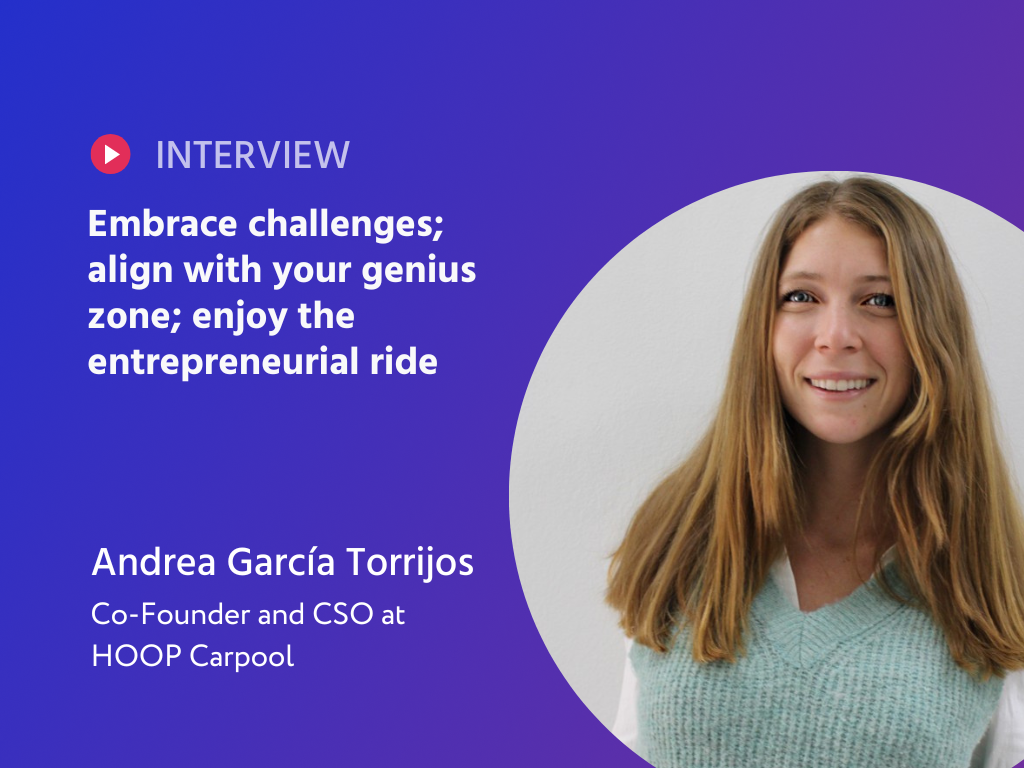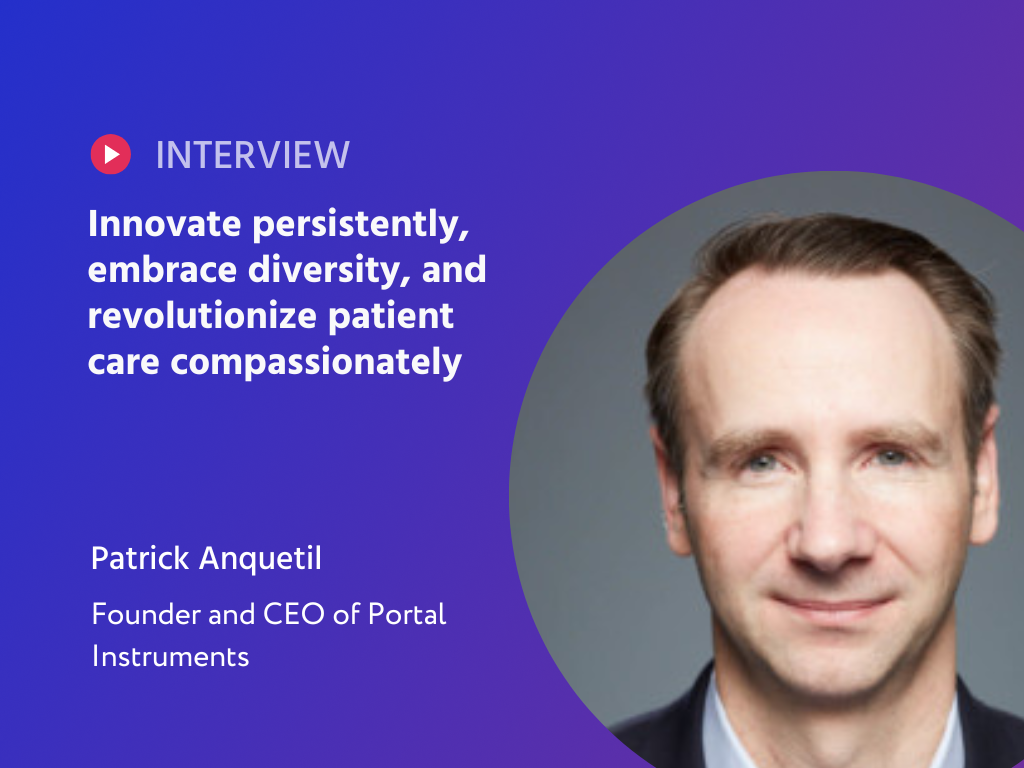In this enlightening interview, we're excited to delve into the world of design and innovation with Christian Bason, the CEO of the Danish Design Centre (DDC). Bason, a respected figure in his field, plays a key role in promoting sustainable growth by design, not just in Denmark but globally. He brings a unique blend of academic prowess and practical experience, serving as a lecturer at esteemed institutions like Henley Business School and Copenhagen Business School, while advising businesses and governments worldwide.
Beyond his illustrious career, he revealed an unexpected facet of his early life - a foray into computer book writing during his teenage years. The conversation further explores his instrumental role in steering DDC's shift in strategic focus since his arrival in 2014.
With a fascinating glimpse into the evolution of design, its impact on business and society, and the role of emerging technologies, we uncover the man behind the screen and the vision propelling the Danish Design Centre forward. Stay with us as we unearth more about Bason's innovative strategies and approach to addressing global challenges through design.
Behind the Screen: A Glimpse into the Tech-Infused Journey of Christian Bason, the Driving Force of Danish Design Centre
Christian Bason, CEO of the Danish Design Centre, has always had a knack for technology. From the tender age of 12 or 13, he was already writing computer books, carving an early path in the world of programming. This surprising tidbit sheds light on a man who has since become an influential figure in the field of design innovation and sustainability.
When Bason joined the Danish Design Centre back in 2014, the organization had a rich history, with roots dating back to 1978. One of his earliest challenges was to facilitate a strategic pivot. This involved selling their building in the heart of Copenhagen, shutting down an exhibition space, and preparing the Centre for a future in a new waterfront development. At its core, this move was about sharpening the focus on design methods and sustainable growth. As Bason describes, it was a task to "turn around the organization."
"In Denmark, there was a government strategy to combine architecture, design, and creative industries in one physical building," Bason explains. "So my job was to pivot the organization towards something quite different, that would be part of this new development."
This task was no small feat. It involved extensive structural changes in the design industry and the consolidation of public funding for design advancement. Through it all, the mission of the Danish Design Centre remained steadfast: harnessing the power of design for competitiveness in business and societal good.
Bason highlights, "We are a pioneer already in the 1980s and 90s, in putting the connection between design and innovation at the forefront… now there is no longer, you know, just working with how design can advance profits alone, it's always balanced with other types of values, sustainability in terms of climate change, or green transition environment, biodiversity, or sustainability in the social sense."
Yet, one intriguing question emerges: with the advent of artificial intelligence and the pervasiveness of tech in every aspect of life, who leads the future? As Bason puts it, "Can we lead the way? That dilemma has always, in a way been there with the tech revolution… but of course, it's at a different scale and level with the business of the internet and AI."
Can we lead the way? That dilemma has always, in a way been there with the tech revolution… but of course, it's at a different scale and level with the business of the internet and AI
As Bason’s journey reveals, at the intersection of technology, design, and sustainability, one finds a fertile ground for innovation, ripe for strategic leadership and visionaries like himself who dare to pave the way.
Christian's Bold Vision: Catalyzing Global Shifts through Ethical Design
The cutting-edge is where Christian thrives. His most recent strategic approach targets the profound global shifts reshaping our world. He recognizes the systemic transition to green practices that leaves no business unaffected. "We need to address environmental concerns, biodiversity, and climate change," he emphasizes, pointing out that European Union regulations, customer demands, and recruitment strategies all hinge on this transformative agenda.
Christian also draws attention to the pervasiveness of digitalization in today's world, particularly in design. "Design and digital go hand in hand," he asserts, highlighting the role of designers in startups and corporate entities alike. But the challenge, he suggests, is ensuring that technology serves people ethically, not manipulating or misusing their data. This has led to a central question for his strategy: "How do we create technology that serves people and also makes sound business sense?"
On a more personal level, Christian reveals his deep concern for societal transitions, especially the rise in mental health issues post-COVID. As a political scientist, he has a keen interest in the broader societal shifts, such as healthcare crises and equality challenges. Consequently, he's chosen to focus on mental health as a primary concern. "Mental health is a significant challenge we need to address, not least during and post COVID," he says, encapsulating the social dimension of his strategic vision.
Mental health is a significant challenge we need to address, not least during and post COVID
In a fascinating twist, Christian's unique strategy isn't just about adjusting to global trends; it's also about reinventing the way organizations function internally. Drawing inspiration from groundbreaking works like 'Reinventing Organisations' and 'Humanocracy,' Christian and his team reshaped their organization into a radically self-managing and self-leading entity. The goal? To create an environment where creativity thrives, productivity soars, and an impact is made. As Christian poignantly puts it, "If you want to be a force for good in the world, you also have to create a good organisation."
Christian's team echoes this sentiment, describing their mission as discovering new ways where design can make an impact, especially in terms of sustainability. They take pride in being part of an organization that radically experiments with leadership, organization, and strategic adaptation. "We're passionate about sustainability and proud of the workplace we're part of," Christian shares, "We're quite radical in how we experiment and how we lead."
Empowering People and Building Trust: An Insightful Journey of Leadership with Christian
In the grand scheme of his professional life, Christian's personal and leadership style is vibrant with energy and passion, creating a trusted atmosphere where innovation thrives. His teammates acknowledge his constant whirlwind of ideas, sometimes feeling overwhelmed, yet inspired by his dynamism. While Christian may be a catalyst for brainstorming sessions, he understands the value of slowing down and taking a step back to allow others the space to develop their thoughts. He confessed, "I think they would say it would be nice if I slowed down a bit sometimes."
Christian’s pivotal moment came while studying leadership in New York in the early 2000s. With an engaged teacher and an interesting curriculum, he discovered the intricate differences between leadership and management. This ignited a passion for leadership in Christian, propelling him to step into various leadership roles upon his return to Copenhagen. His leadership journey also carries the imprint of the mantra, "the best argument wins," which he acquired from his consulting days. This approach shaped his leadership style, emphasizing the value of intellectual contributions over hierarchical positions. Reflecting on his journey, Christian encapsulated his ethos with the line, "what really matters to me has been the quality of the thinking, the acting, and the relationships."
As we move into an increasingly digital age, Christian pointed out the changing dynamics of leadership. He explained that the complex, wicked problems we face today, such as climate change and mental health, require a new level of thinking and leadership. We need leaders who can navigate these intricate issues and understand the societal implications of the decisions they make. Christian’s perspective on technology's role is not binary; it could either set us free or enslave us, depending on how it's used. His deep awareness and insight into the intersection of technology and humanity are a testament to his forward-thinking leadership approach.
The Democratization of AI: A Glimpse into the Future with Christian
From the whimsical dreamscapes of the 1980s to the present era of technological advancement, Christian traces his journey with artificial intelligence (AI). The story starts with computers barely faking intelligence to now, where the capabilities are awe-inspiring. The astounding twist in the narrative lies in the democratization of AI; the technology, once a preserve of tech giants, is now accessible to everyone. For instance, even though an attempt to use Chat GPT for planning a parents' dinner for their local school was unsuccessful, the fact that AI was considered for such an undertaking is remarkable.
I think what's changed is basically the pervasiveness and the access; the access is just, it's at your fingertips…Now you are creating the experience yourself
Christian acknowledges the concerns that arise with such swift advancements in AI; it could potentially lead to a reduction in critical thinking or even dependence on the technology. However, he expresses an optimistic stance, drawing parallels with the advent of the calculator. He believes AI, if approached correctly, can augment human abilities rather than suppress them. His words suggest an intriguing possibility where AI might prompt a renaissance of our innate creativity, intuition, and imagination.
Looking into the future, Christian sheds light on the Danish Design Centre's strategy: green, digital, and social. With the green transition already gaining momentum, his ambition is for the organization to become a global player in the dialogue around ethics and responsibility in AI, and to make an impact on mental health challenges. Furthermore, he also hopes that their projects will continue to thrive independently. Despite his optimism, he expresses a sense of urgency about the rapid developments in AI, implying the need to be proactive in their approach towards the issue.



